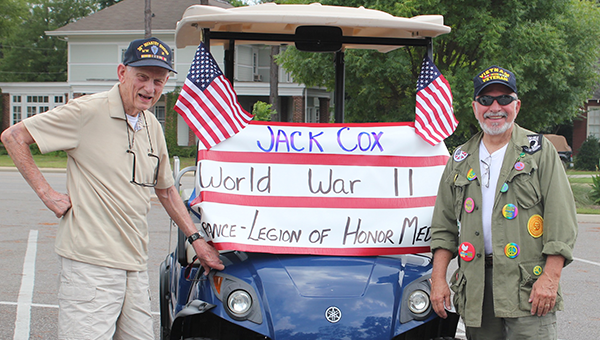Truths of famous novel still apply
Published 12:16 am Wednesday, August 4, 2010
The buzz about the anniversary of To Kill A Mockingbird, which was published 50 years ago this summer, sent me searching our bookshelves for my copy. To say that copy is loved and well-worn is an understatement. The pages are long-yellowed with age, but the words … the words are still beautiful.
As media attention beamed on the golden anniversary of this classic Southern tale, modern-day critics faulted the fictional character of Atticus Fitch for not making a strong-enough fight against the racial aspects of his famous rape case. They seem not to have noticed that the story is set in the days of the Great Depression, that the read would not be believable fiction if the plot were changed to accommodate the sensitivities of our times. Instead, Harper Lee gently pulled back the curtain on racism and enticed us to have an honest look; a look, frankly, that many should take again today.
But it is the strength of Lee’s characters, her descriptions of small towns, to which I frequently return.
I especially like the children’s neighbor Miss Maudie, “who worked in her flower beds in an old straw hat and men’s coveralls, but after her five o’clock bath would appear on the porch and reign over the street in magisterial beauty.”
“She called us by all our names,” the narrator tells us.
Mrs. Grace Merriweather, who didn’t make the movie, is described as “the most devout lady in Maycomb” whose “large brown eyes always filled with tears when she considered the oppressed” and who “played her voice like an organ.” It has not dawned upon Grace Merriweather that there are people in her own community who are oppressed. The years have not changed some truths.
Perhaps we Southerners feel as if we know Lee’s characters because we do know them, only we call them by different names.
“It’s just as much Maycomb County as missionary teas,” Atticus Fitch tells his sister when she is appalled that his children have slipped down to the courthouse and heard ugly truths revealed in a trial.
Fifty years later, the line still hits home. As pretty a picture as we’d like to paint, there are still dark parts of our story, including crime and injustice. We are still eager to send our dollars to help those far away, yet reluctant to acknowledge the needy and downtrodden here at home.
So it heartens me that Harper Lee’s Pulitzer Prize-winning novel is No. 8 on bestseller list of Southern independent book sellers, to be enjoyed by proud new owners for decades to come.



